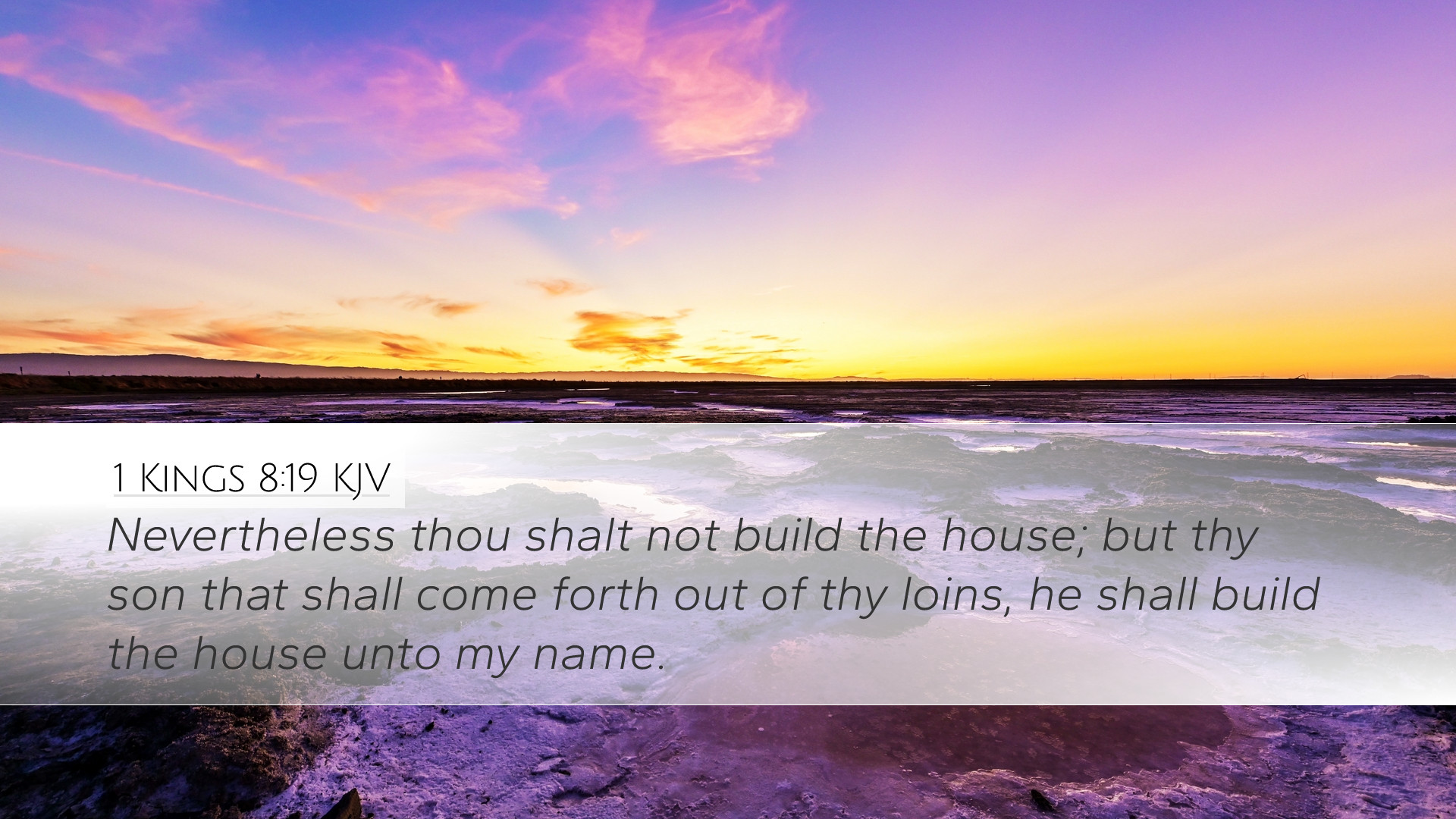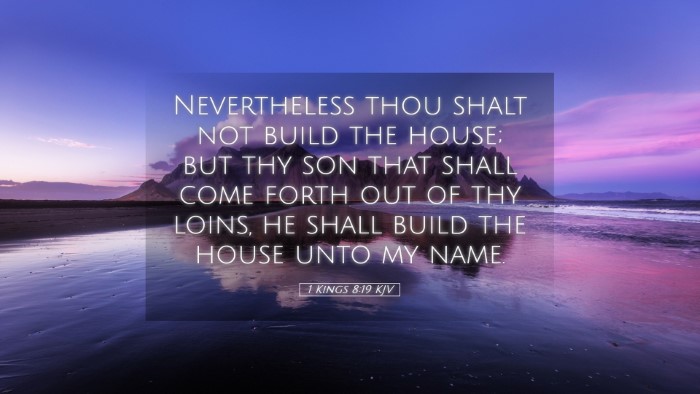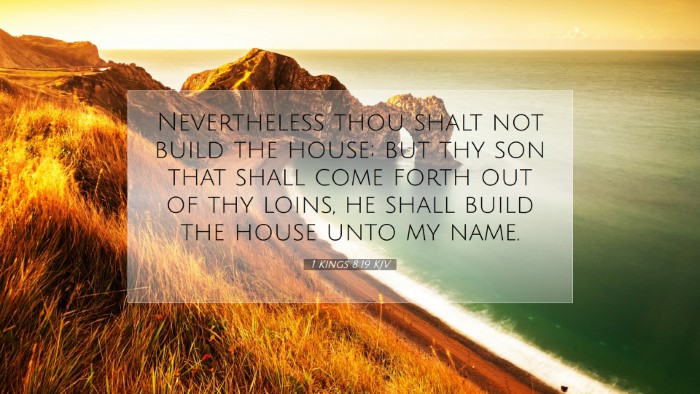Commentary on 1 Kings 8:19
Bible Verse: "Nevertheless, you shall not build the house, but your son who will come from your body, he shall build the house for My name."
Introduction
1 Kings 8:19 is a pivotal verse within the context of Solomon's reign and the construction of the First Temple in Jerusalem. In this verse, God, through the prophet Nathan, communicates His divine decree concerning David, which carries significant theological and historical implications. This commentary synthesizes insights from prominent public domain commentaries to provide a comprehensive understanding of the verse’s meaning for pastors, students, theologians, and Bible scholars.
Contextual Background
The verse appears in the broader narrative of the establishment of the Temple, which symbolizes God's presence among His people. David had desired to build a house for the Lord, reflecting his heart's devotion and desire for a permanent dwelling for God. However, God's response to David reveals His sovereign choice in determining who would build the Temple, highlighting the importance of divine appointment in spiritual matters.
Divine Selection
Matthew Henry emphasizes that God's decision to allow David's son Solomon to build the Temple reminds us of the principle that divine plans often transcend our personal desires. God's plans may not align with what we envision, but they always serve His greater purpose.
Geographical and Historical Significance
Albert Barnes notes that the construction of the Temple by Solomon was a momentous occasion that not only established a central place for worship but also solidified Israel's national identity. The Temple served as a visible symbol of God's covenant with His people, which is a theme that resonates throughout the scriptural narrative.
Theological Reflections
The verse presents deep theological insights regarding God's sovereignty and the conditional nature of God's promises.
Sovereignty and Promises
Adam Clarke points out that while David is renowned for his heart after God, his ambition to build a house for God did not lead to the fulfillment of that vision. Instead, it was God's sovereignty that dictated the terms of His covenant, contextualizing the narrative within the framework of divine will versus human intention.
Covenantal Context
The promise made to David extends beyond Solomon, encompassing the entire lineage of David, ultimately culminating in the messianic line. This speaks to the expansive nature of God's covenant, which includes promises not only for immediate generations but for all who are included in His redemptive plan.
Application for Today
In applying the truths found in 1 Kings 8:19, we can derive several key applications:
- Commitment to God's Will: Believers are reminded to align their ambitions and dreams with God's will, understanding that obedience to God's direction bears greater significance than personal desires.
- Generational Faithfulness: The importance of passing faithfulness to the next generation, as Solomon's role signifies the continuation of God’s work through a lineage of faith.
- Understanding God's Sovereignty: A recognition that God’s plans will be fulfilled according to His timeline and according to His choice, which encourages trust and patience among believers.
Conclusion
1 Kings 8:19 serves as a powerful reminder of God's sovereignty, the nature of divine promises, and the continuity of faith through generations. As leaders and students of the Word, it is essential to grasp the depth of this verse and its implications for our understanding of God's enduring covenant. God, in His wisdom, often guides and redirects our paths for His glory and the benefit of His people, illustrating the profound truth that His plans far exceed our own.


